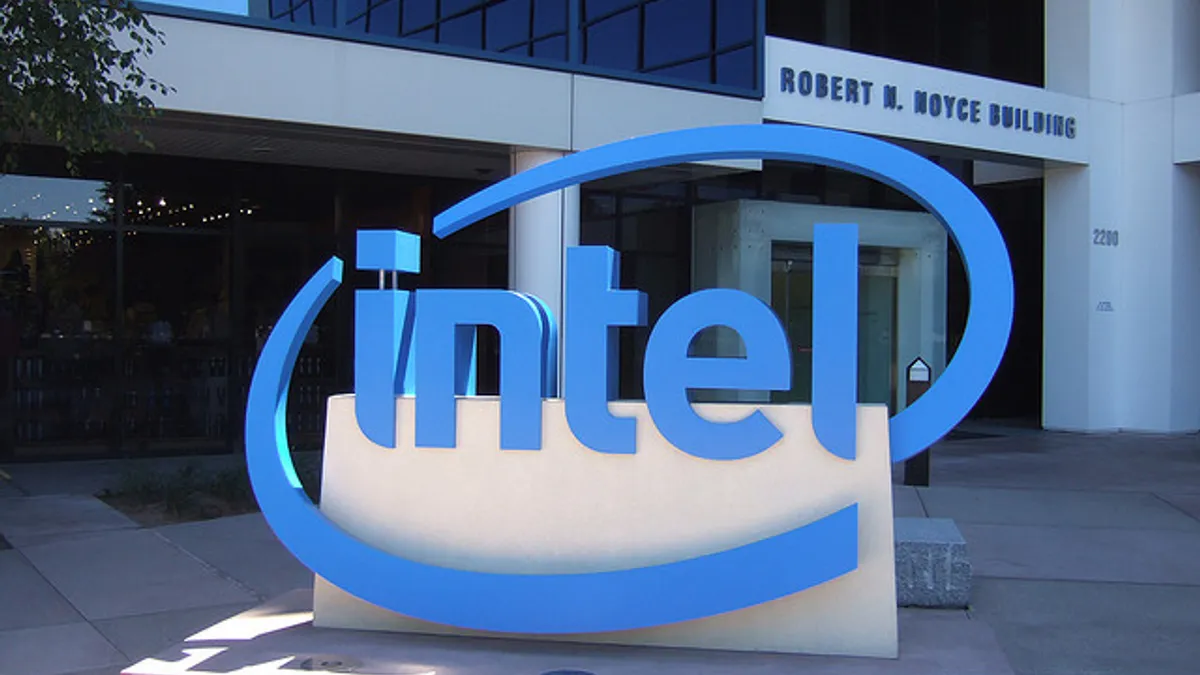Dive Brief:
- Spectre and Meltdown headlines may have dominated coverage in the new year, but Intel continued to roll out new technologies and relationships in January, including a three-year partnership bringing artificial intelligence to the Ferrari Challenge North America Series. AI and ML algorithms will provide real-time data analytics for race teams, drivers and broadcasters to delve into performance and tailor the fan viewing experience, according to Intel.
- For the 2018 Sundance Film Festival, the company announced machine learning and virtual reality tools. The latter will map attendees faces and offer a digital environment for interaction through avatars, and VR tools will allow viewers to insert themselves into space.
- Intel CEO Bryan Krzanich introduced a 49 qubit quantum test chip at CES earlier this month — just two months after the company announced a 17 qubit test chip, according to a company announcement. Though an important milestone for the company, it could take five to seven years until engineering-scale problems are tackled by the technology, and commercial relevance will demand at least another one million qubits.
Dive Insight:
Intel has refocused its business lines to become a 50/50 company where PCs and new markets — including AI, cloud and Big Data — make up equal parts of revenue. Last year, the company announced it was investing $1 billion in AI alone, especially AI startups.
But at a macro level, the races in quantum computing and AI technology are still on. Intel's 49 qubit chip meets a record set by IBM in November, but the industry still has a long ways to go for commercial viability in quantum computers.
Niche applications in spheres like entertainment and racing demonstrate the potential the technology has for other industries, but a bigger race than profitability is looming.
Foreign competition with China in both quantum computing and AI will define the markets in the next few years. China's top two quantum systems are already larger than the remaining global top 10 systems combined, and the country is set to construct an $11 billion quantum research facility.













